LloydsPharmacy Online Doctor 2025 Health Trends Calendar
Reviewed by Dr Bhavini Shah
With so many important health awareness days taking place throughout the year, to help ensure you don’t miss out we’ve created our very own calendar for 2025.
Packed with global and UK annual awareness events, Google search trends, and data from LloydsPharmacy Online Doctor’s website, take a look at the monthly highlights below or download your own PDF version by clicking here.
January
During January New Year’s resolutions are in full swing. It’s no surprise then that searches for ‘Keto diet’ and ‘gym memberships’ peak, with many people embarking on a weight loss journey.
Interestingly, searches for ‘sleeping tablets’ also peak - suggesting Christmas festivities have impacted regular sleep schedules.
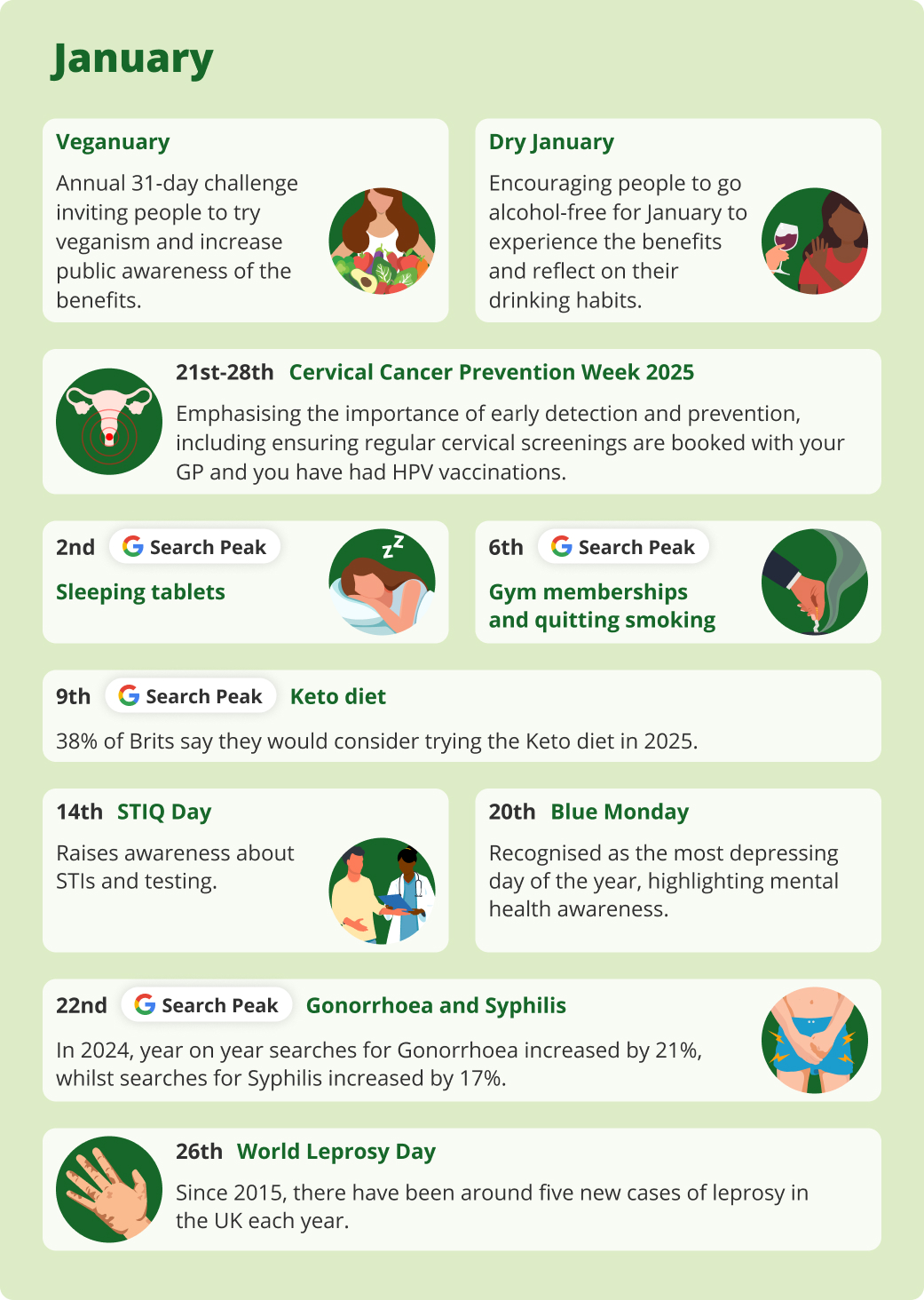
February
February is the month of love, with Valentine’s Day taking place on the 14th. However, the week before, Google searches for Viagra spike: suggesting men who suffer from erectile dysfunction are looking for treatment ahead of the romantic date. In support of this, our recent survey* revealed that 45% of couples feel there’s an expectation to have sex on Valentine’s Day.
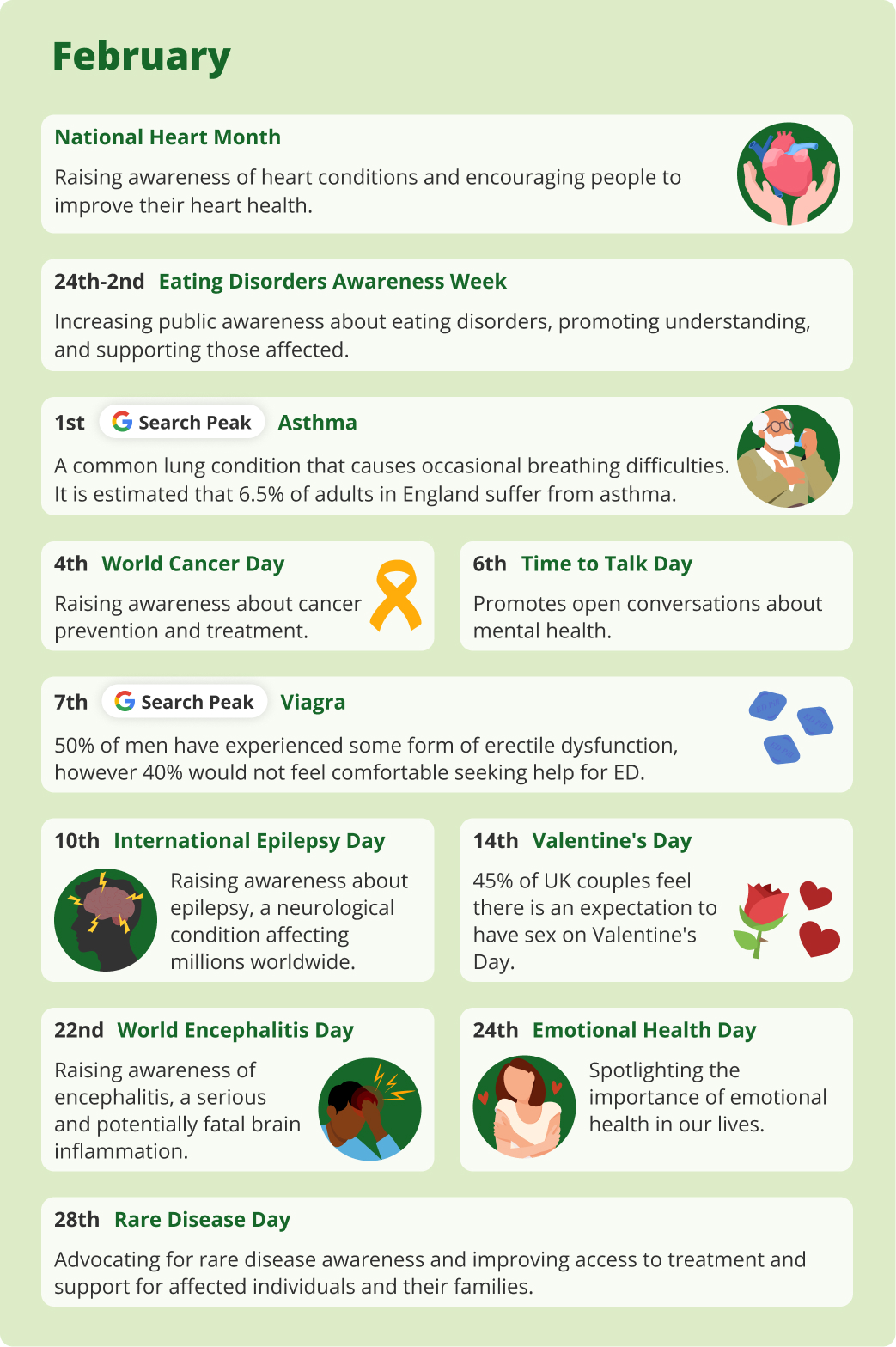
March
Endometriosis Awareness Month is just one of the important events taking place in March. This coincides with Google searches increasing for ‘birth control medication’, commonly used to manage endometriosis before a definite diagnosis.
Alongside this, the 12th of March is recognised as No Smoking Day, which is the perfect opportunity to seek alternatives like stop smoking aids.
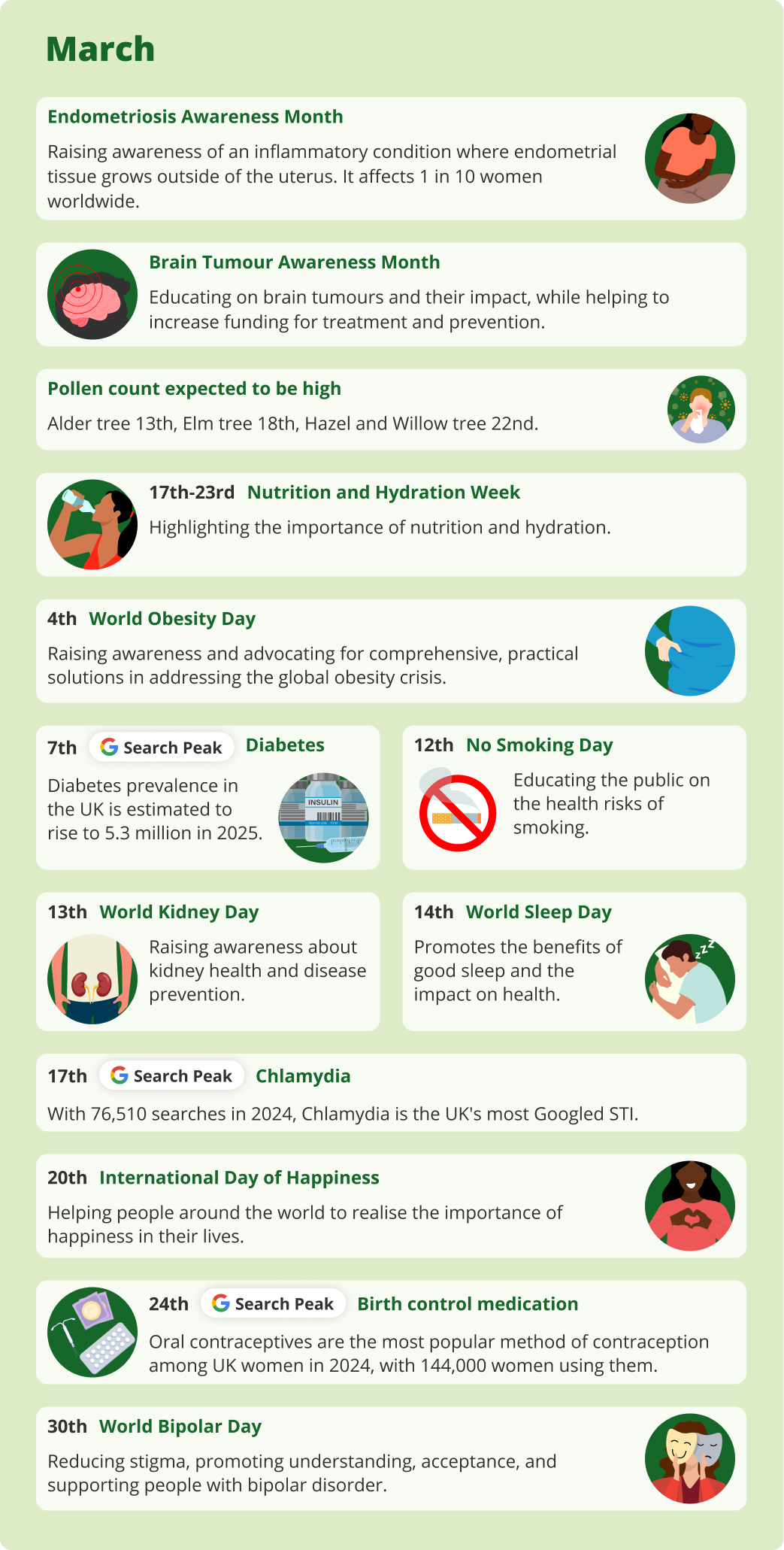
April
Intended to recognise thyroid disease and promote the study and treatment of thyroid illnesses, World Thyroid Day takes place in April. For women, hormonal imbalances triggered by an overactive or underactive thyroid can cause symptoms such as weight changes, sleep problems, anxiety and depression. However, home blood tests can easily check thyroid stimulating hormone and detect issues.
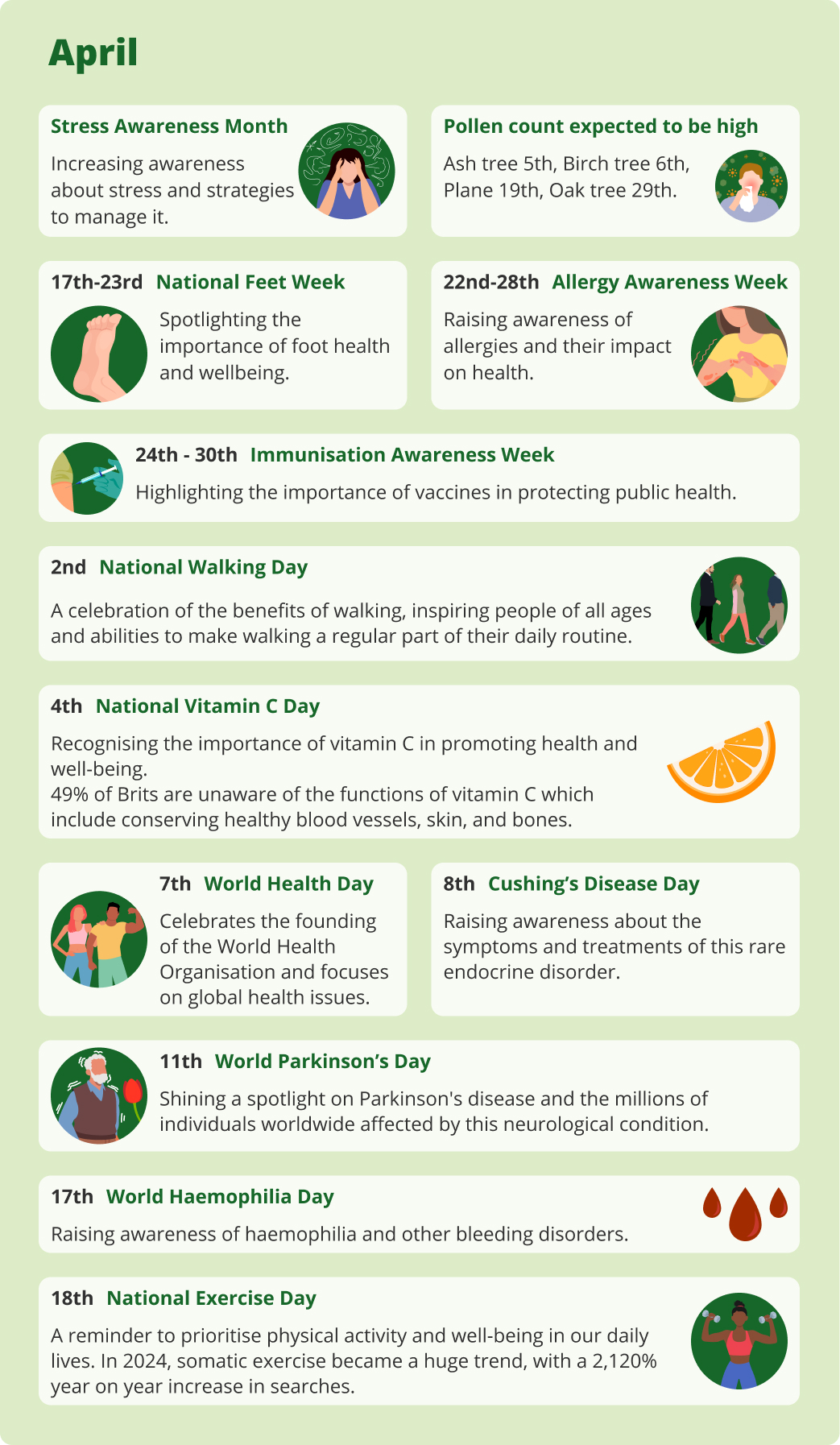
May
Food Allergy Awareness Week takes place from the 11th to 17th May, designed to educate and support those who suffer from food allergies. Interestingly, during that week historical data shows that traffic to the LloydsPharmacy Online Doctor’s Epipen page increases, suggesting that an increasing number of people are looking for treatment.
In a bid to protect Brits from sun damage, it’s also National Sunscreen Day on the 27th and Sun Awareness Week from the 12 to 18th.
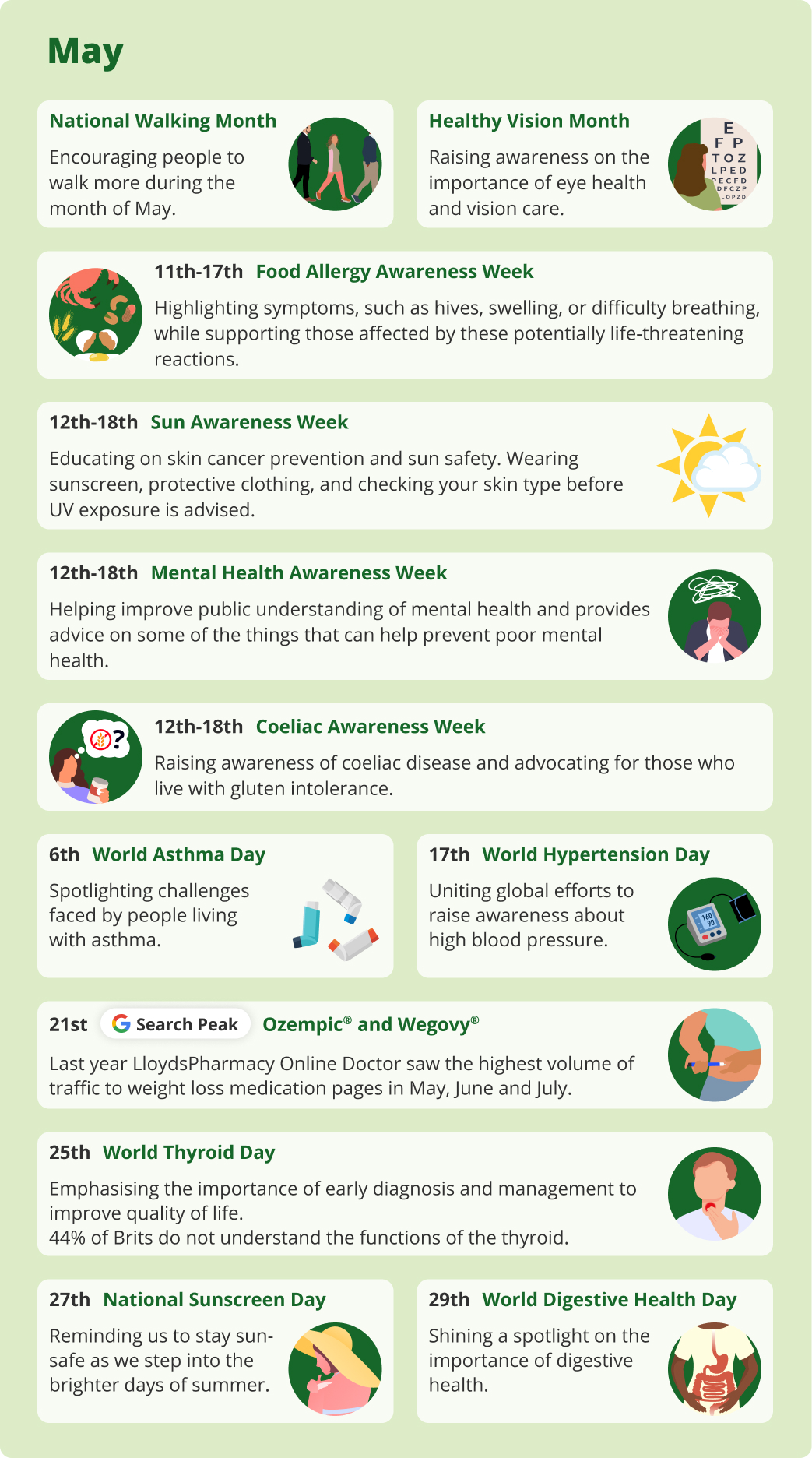
June
As the warm weather arrives, so does hay fever. Data from the MET Office shows that grass pollen, mugwort weed, and nettle weed pollen are all high during June, which correlates with Google searches for ‘hay fever’ peaking. Not only that but, throughout June, traffic to LloydsPharmacy Online Doctor’s allergy pages increases by 70% on average when compared to the other months of the year.
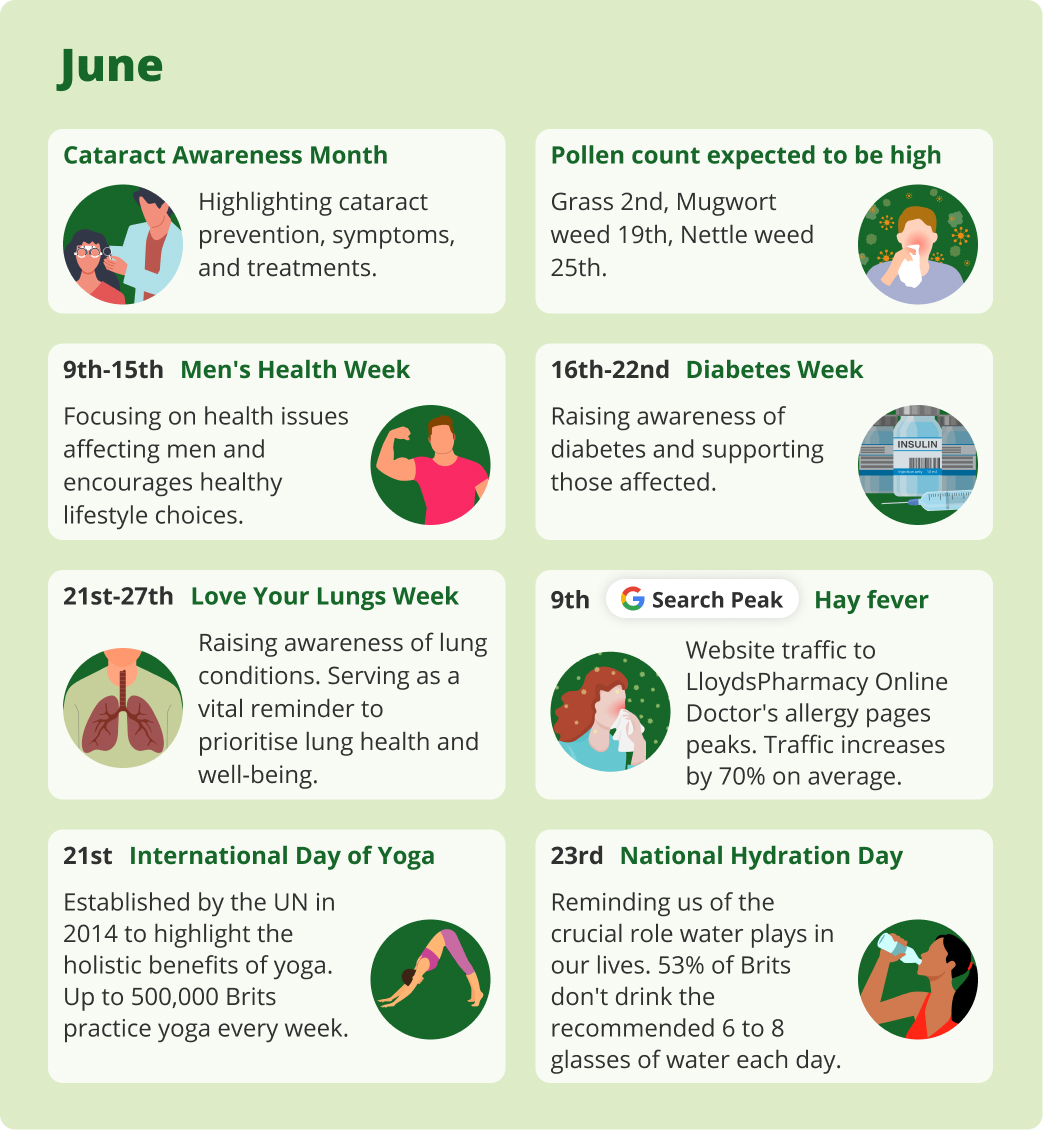
July
In mid-July, around the 13th, Google searches for hair loss treatments increase, likely driven by 44% of UK men feeling self-conscious about their hair loss due to the increased exposure and awareness brought on by warmer weather.
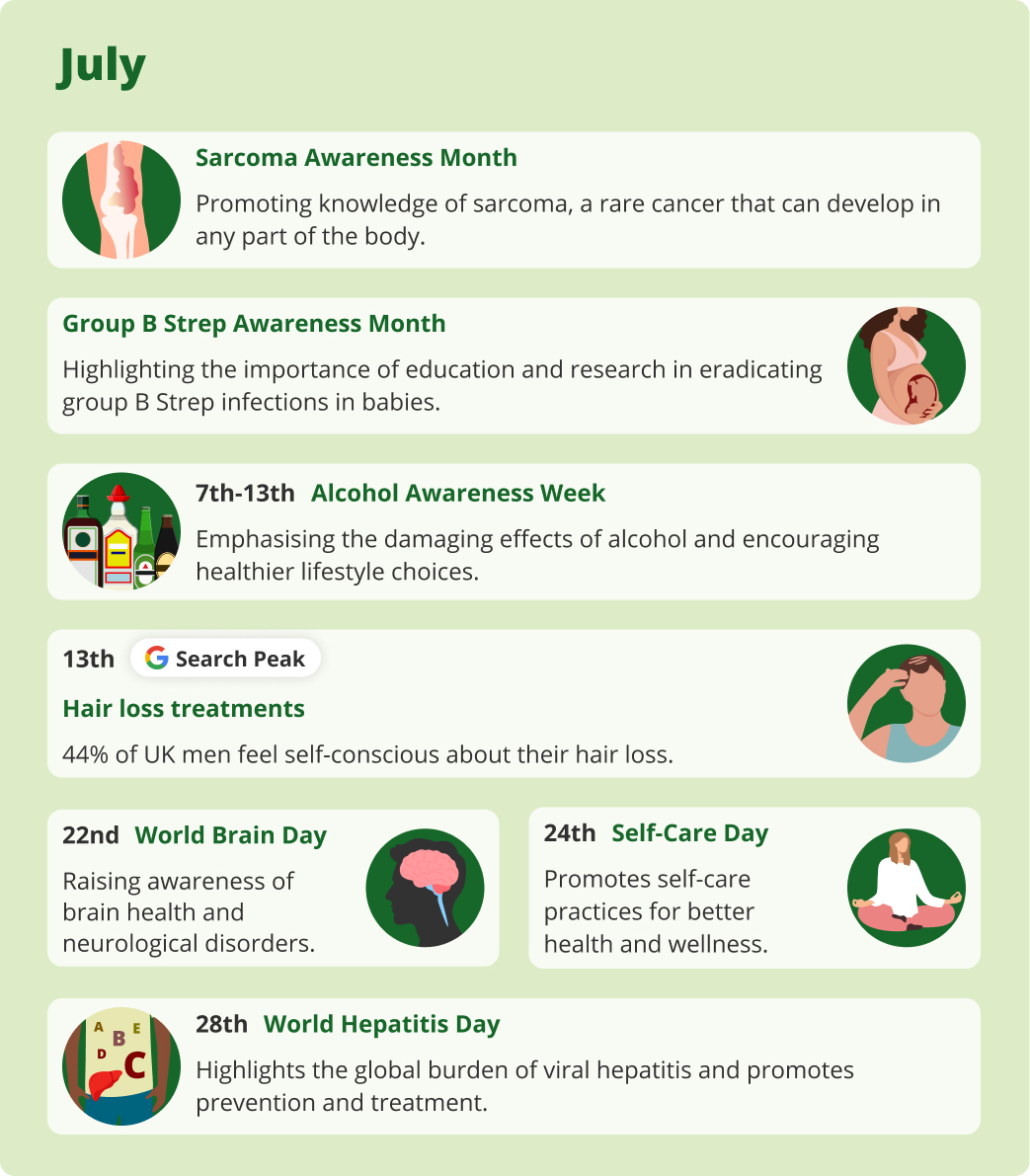
August
It’s a busy month in August, with Cycle to Work Day taking place on the 7th and Relaxation Day on the 15th, encouraging people to de-stress. In fact, a recent survey found that the most common cause of stress amongst Brits is work-related, with 79% saying they frequently feel it.
Immunisation Awareness Month also takes place in August – highlighting the importance of vaccines in protecting public health.
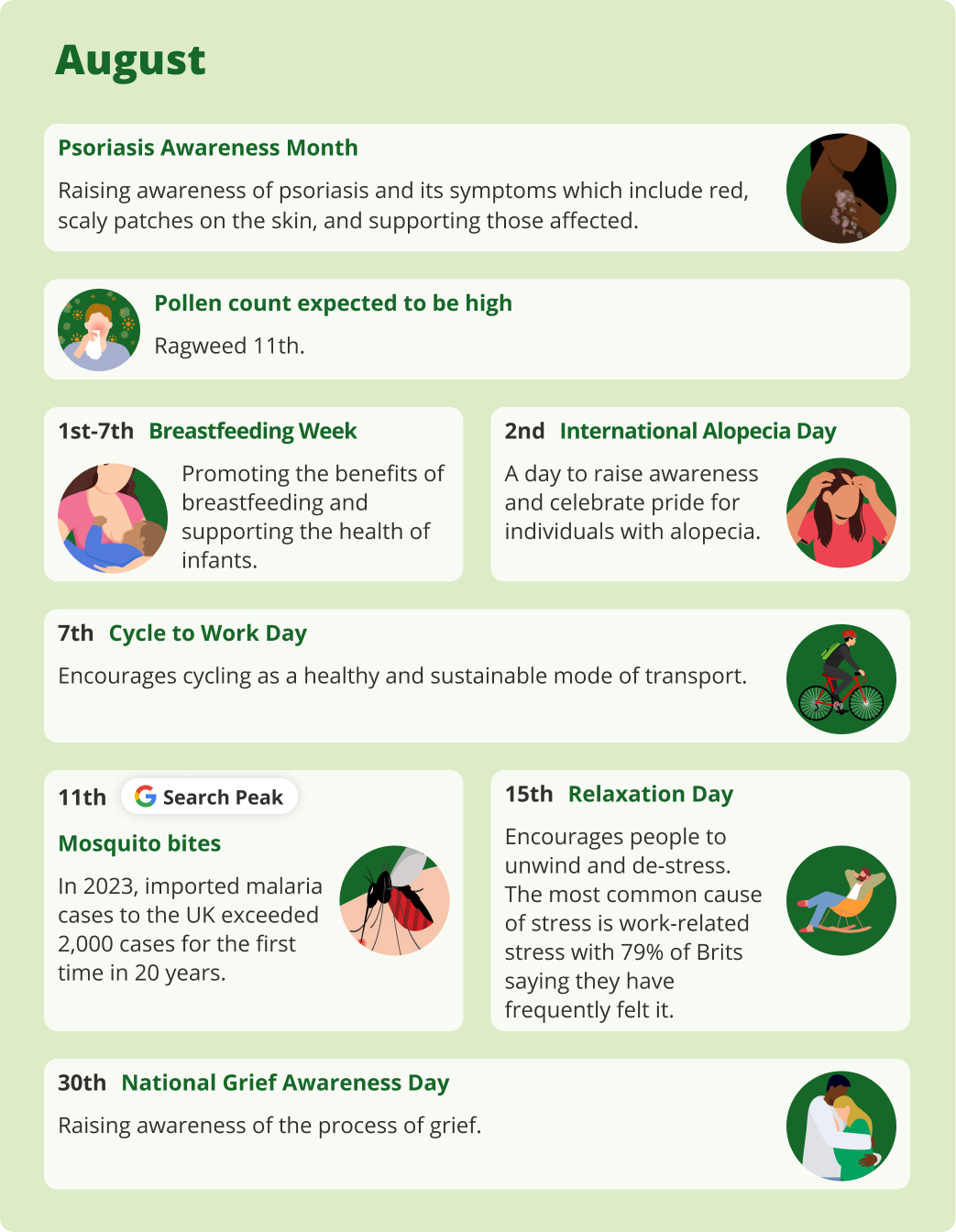
September
September is Sexual Health Awareness Month, designed to promote sexual health education, awareness and advocacy. As a part of sexual health awareness month, World Sexual Health Day takes place on the 4th September.
Did you know that 31% of Brits use online educational materials as their primary source of sexual health and contraceptive information? Find out more in our safe sex report.
Contraception Day falls on 26th September which raises awareness of contraception and reproductive health – an enormous 144,000 women use oral contraceptives in the UK.
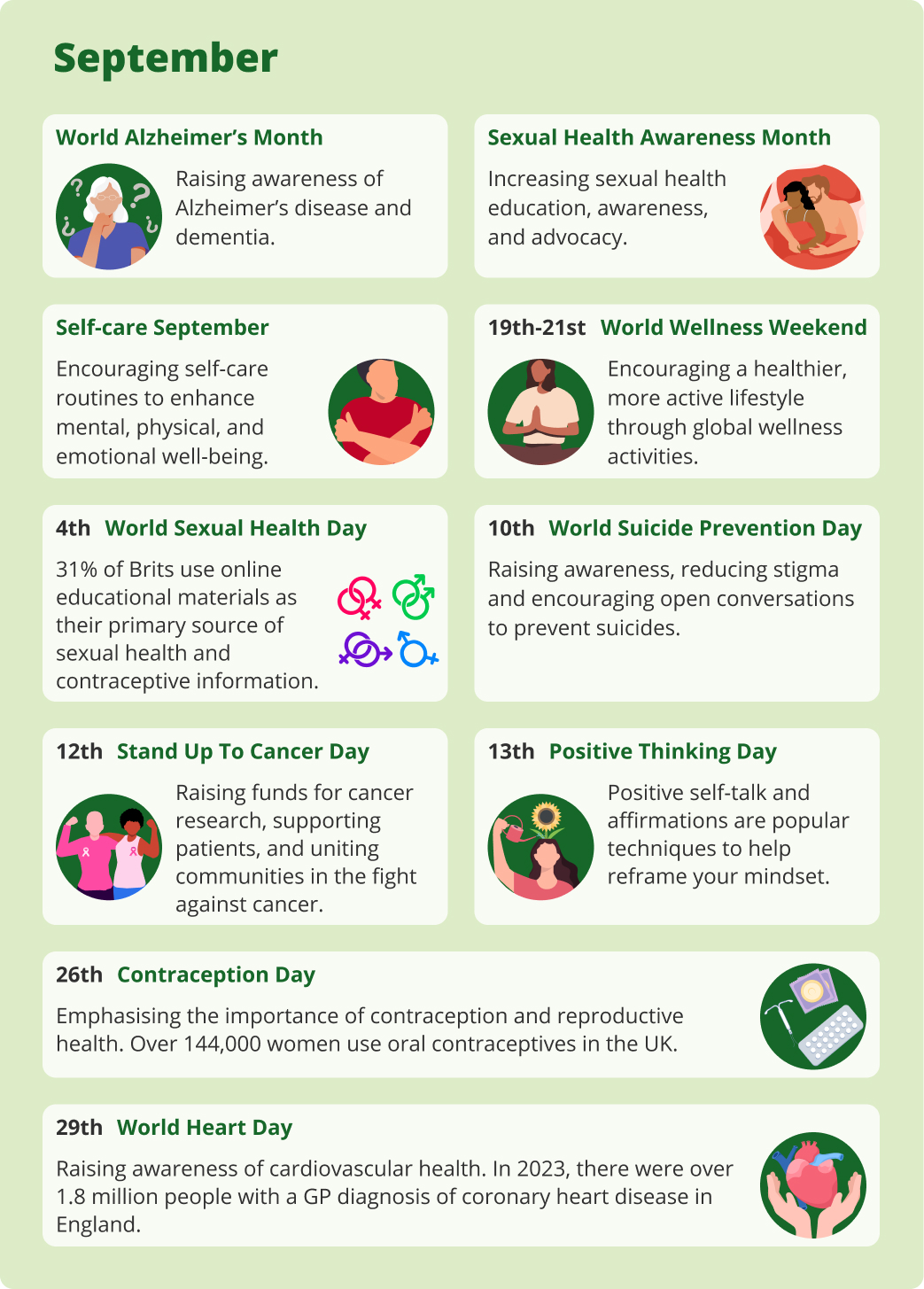
October
October is dedicated to raising awareness of the menopause. Not only is it Menopause Awareness Month, but World Menopause Day is held annually on 18th October. These events aim to break taboo and improve women’s health and well-being by raising awareness of the symptoms of menopause and the support available. With this in mind, it’s no surprise that Google searches for menopause peak on 19th October.
Google searches for dust allergies also increase on 22nd October. Dust allergy symptoms include sneezing, a runny or stuffy nose and red itchy eyes.
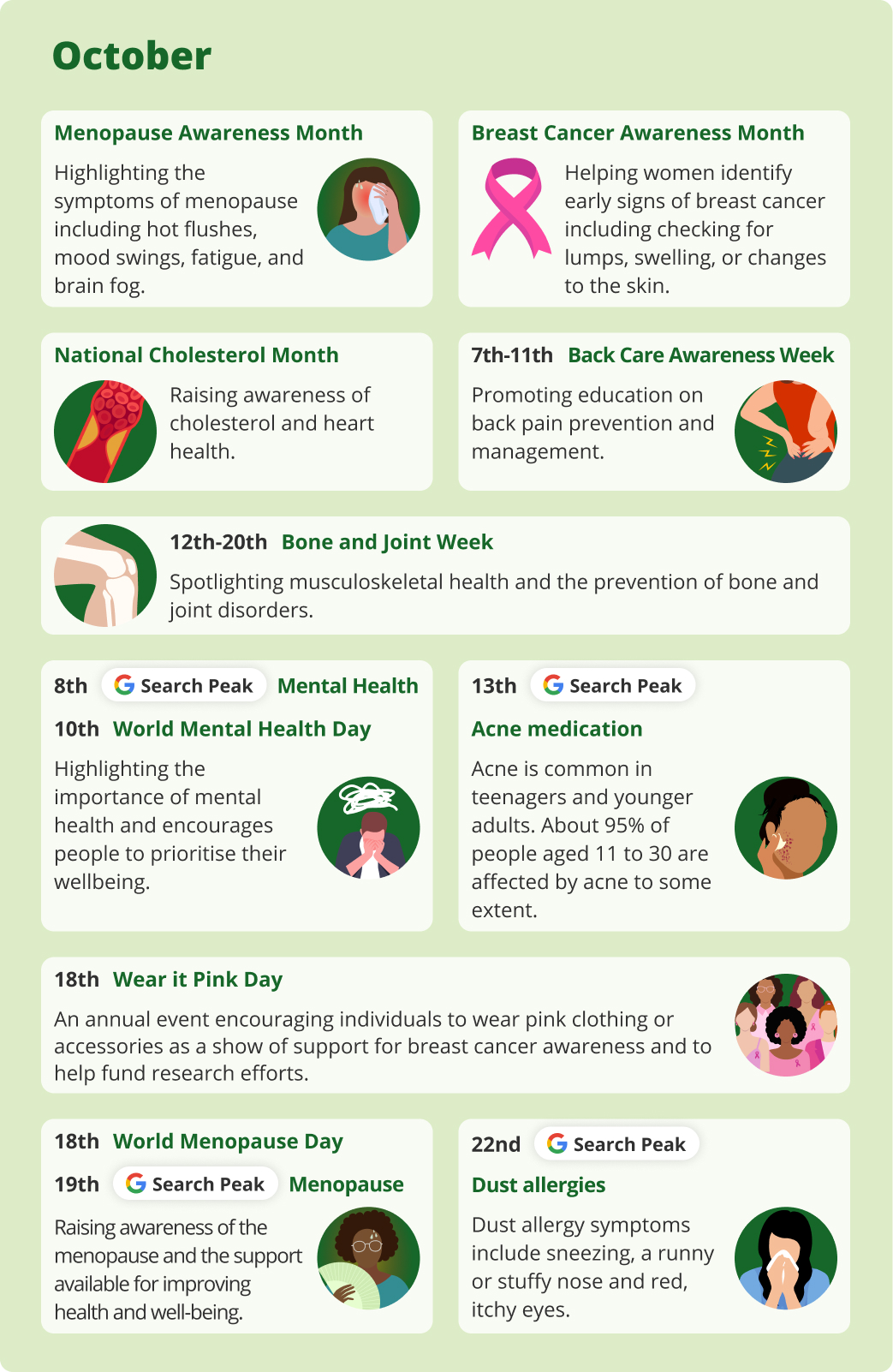
November
November, also known as ‘Movember’, focuses on men’s health issues, including prostate cancer, testicular cancer and mental health. Typically, men grow moustaches throughout the whole month to raise awareness.
Google searches for thrush peak on 6th November, while on the 10th Google searches for genital herpes peak, with the highest number coming from Newcastle.
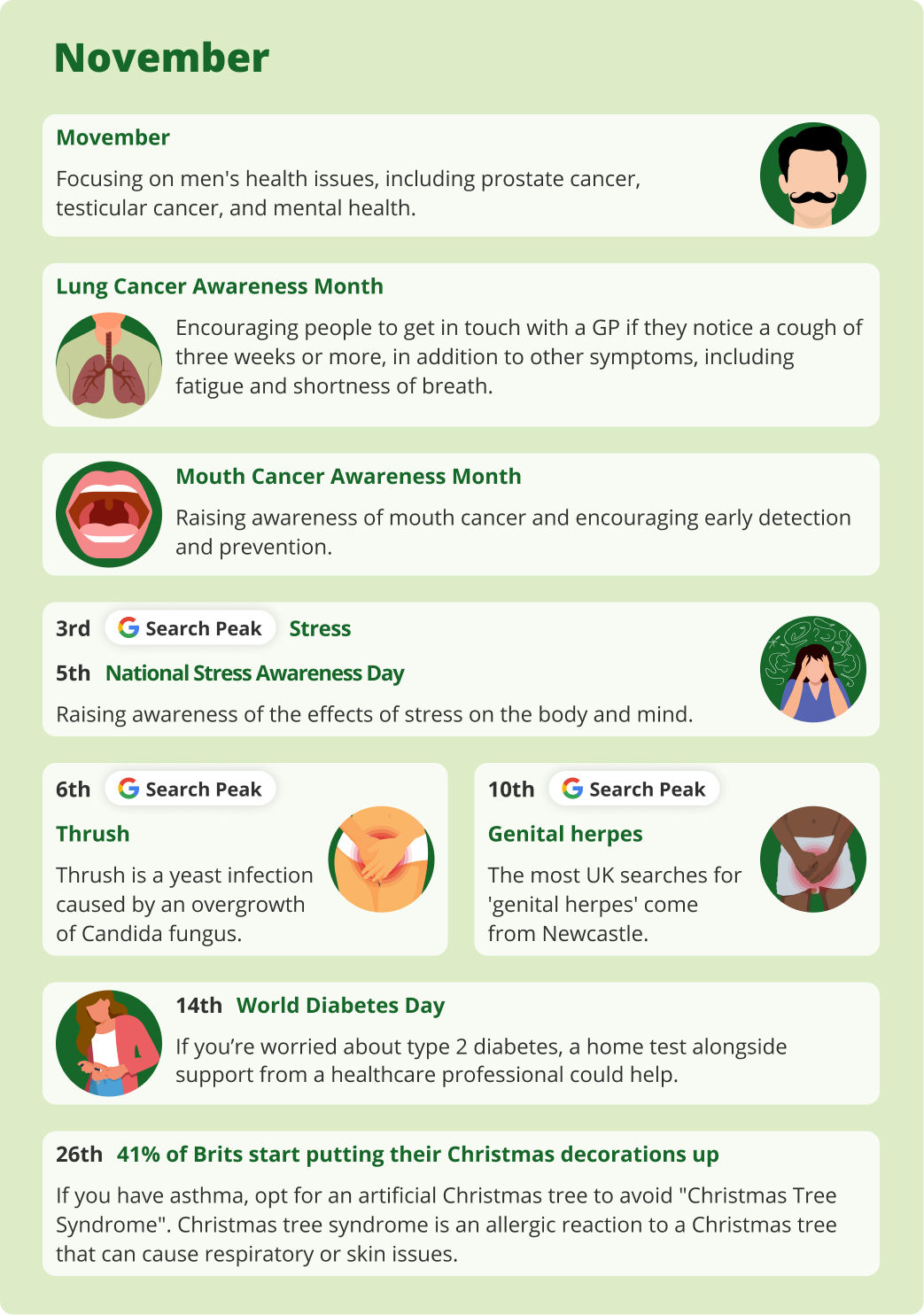
December
World AIDS Day lands on 1st December, raising awareness about the virus and promoting prevention and treatment.
December also marks Seasonal Affective Disorder awareness month. As December is usually the darkest month in the UK, it's likely more people will experience symptoms including low energy, irritability, difficulty concentrating, changes in sleep patterns, and feelings of sadness or hopelessness.
Google searches for the common cold are at their highest on the 6th, as typically colds are spread in the winter months. Cold symptoms come on gradually over 2 to 3 days and include a blocked nose, sneezing, and a sore throat.
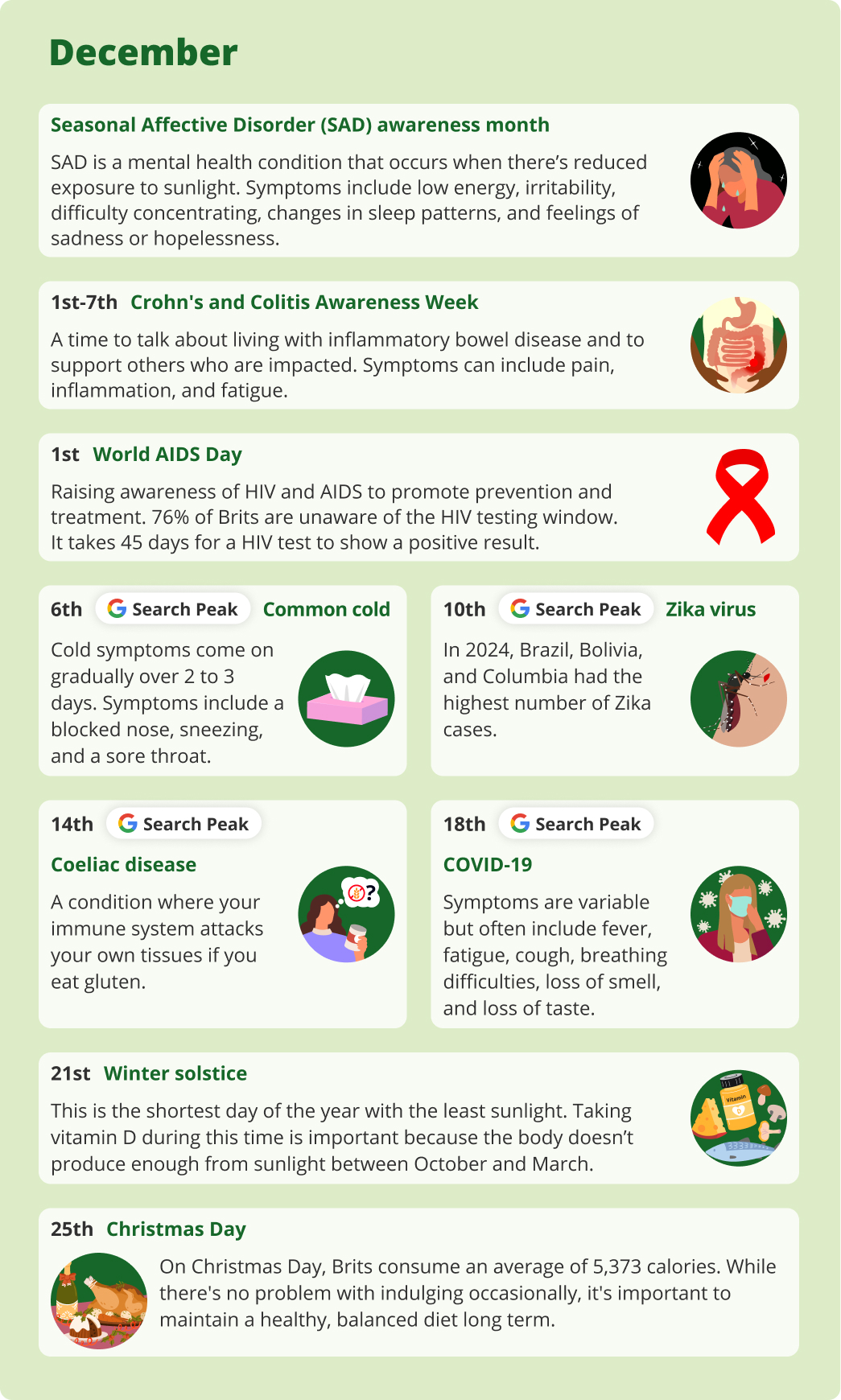
Methodology
To create our Health Calendar for 2025, we identified key UK and international health-related event and awareness days using https://awareness-days.co.uk/ as a primary source, verifying 2025 dates through comprehensive online research.
To anticipate search interest around health products and topics, we analysed historical Google search data from the past three years for relevant keywords and keyword collections. This enabled us to predict probable peak search dates in 2025 based on observed trends. Additionally, we incorporated weather and pollen data from the Met Office to estimate periods of high pollen counts and other environmental factors known to influence health-related behaviours.
*We carried out Onepulse surveys using 500 respondents to reveal knowledge around health, sex, and wellness.



